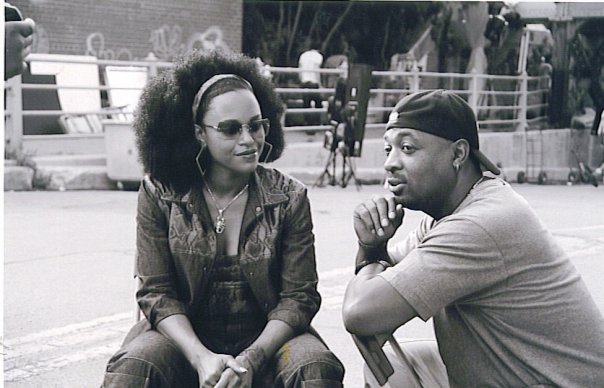Celebrating some of Canada’s Blues Greats!
Celebrating some of Canada’s Blues Greats!

By Phil Vassell
On August 11, 1973, inside the recreation room at 1520 Sedgwick Avenue in an apartment building in the Bronx, New York, 18-year-old Jamaican-born Clive Campbell, aka DJ Kool Herc, used two turntables looping high energy breaks to create a mix and that became the basis for what we now call hip-hop. DJ Kool Herc has been honored as the founder of hip-hop and celebrated numerous times for his contributions to culture.
In 1979 the Sugar Hill Gang released a seminal record titled “Rappers Delight,” which became a global hit, introducing the world to hip-hop. It was not the first hip-hop record but it was the most popular. Several weeks later, the first known Canadian hip-hop record, “Ladies Delight” was released by an artist known only as Mr. Q, as a nod to “Rappers Delight.”
Fifty years later, the City of Toronto issued a proclamation to celebrate and acknowledge this important day in music history. Hip Hop has come a long way. Moreover, the proverbial stone that the builders refused has become a cornerstone of today’s popular music and culture.
That historic Canadian record, “Ladies Delight” was produced and distributed by Monica’s Production, owned and operated by George Lewis. George is one half of the husband and wife team who owns Monica’s Beauty Salon and Cosmetic Supply, a well-known institution located in the Eglinton and Oakwood area in the heart of Little Jamaica.
The track was produced and distributed by Monica’s Production, owned and operated by George Lewis. George is one half of the husband and wife team who owns Monica’s Beauty Salon and Cosmetic Supply, a well-known institution located in the Eglinton and Oakwood area in the heart of Little Jamaica. The area was also known as the hotbed for reggae music production and sales in Canada.
Hip-hop music became a powerful underground movement that captured the imagination of young people who had something they could call their own. Powered by sound systems and DJ crews including: Sunshine Sound, TKO Sound, Maceo and Kilowatt Sound, among others, college and campus radio hosts also embraced hip-hop and fed the appetite for this new music.
One campus radio host stood out here in Toronto for his early contributions to the scene: DJ Ron Nelson’s program, Fantastic Voyage became the epicentre of hip-hop on Ryerson’s CKLN 88.1 FM from 1983 to 1991. Nelson also promoted concerts at Toronto venues including the Masonic Temple and Varsity Stadium featuring some of the early stars of hip-hop from the US (Run DMC, Public Enemy, Ice Cube, Queen Latifah and more) alongside local hip-hop artists. Early homegrown stars include Michie Mee, Maestro Fresh Wes, Dream Warriors, Rumble and Strong, and Carla Marshall.
Later Much Music’s Soul in The City and Rap City, created and hosted by Michael Williams, pushed hip-hop nationally, extending its reach coast to coast to coast in Canada. Williams also had one of the first Black music programs including hip-hop on commercial FM radio in Montreal and later Toronto. VJ Master T picked up the baton and also became a household name across Canada for introducing a new generation to hip hop, R&B and reggae/dancehall.
The scene grew to include household names including Toronto’s home-grown artists such as Saukrates, Kardinal Offishall, Ghetto Concept, Choclair, kos, K’naan and later Drake who became a global superstar. Across Canada, Montreal, Vancouver and Halifax became hotbeds for rappers whose music became known nationally and internationally.
Ivan Berry, an African Canadian record executive broke new ground with the release of Canadian rap artists titled Rap Essentials Vol 1 & 2 on his Beat Factory Management company, which was underwritten by EMI, headed by Dean Cameron. Artists featured in Rap Essentials Vol.1 released in 1996 included Kardinal Offishall, Choclair, Ghetto Concept, Rascalz, Dan-e-o, Scales Empire, among others. Rap Essential Vol.2 later corrected a major oversight on the first compilation by including female rap artists such as Motion, Michie Mee and Tara Chase.
Berry became a behind the scenes force in the emerging hip hop industry in Canada guiding the careers of Michie Mee, Dream Warriors, Organized Rhyme and others, as well as organizing Canadian rap tours across the country, based on the strength of Rap Essentials 1 & 2.
In the early years of hip hop’s development, the cultural dialogue between music cities such as Detroit, New York and Toronto have been an important feature of hip-hop and its growth and development in Canada. In Toronto, the Caribbean community has played a central role in the growth and development of Canadian hip-hop. Toronto’s African community has also contributed to the impressive rise of hip-hop. And one cannot forget that cities like Montreal with the influence of Haitian Canadians there, along with cities like Vancouver and Halifax. All have proud local histories of their own in contributing to hip hop music and culture.
Globally, hip-hop at 50 is a multi-billion dollar industry and its influence can be felt in all corners of the worlds in fashion, film, television, advertising, athletics, literature and beyond.
Happy 50th hip-hop
The Canada Black Music Archives is a non-profit digital archive established as a division of Word Media Group Inc.
contact us
124 - 639 Dupont St. Toronto, ON M6G 1Z4
sponsors and supporters
We are grateful for the support of the TD Bank Group, Province of Ontario, Government of Canada as well as our donors, members and volunteers.






